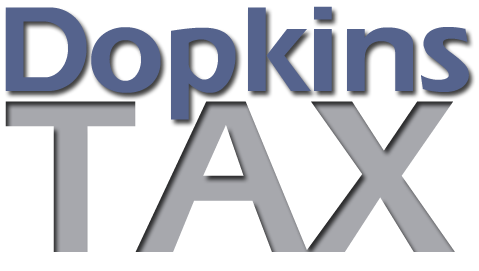Own Tangible Property? You Should Know These 2 Regs
December 4, 2015 | Authored by Dopkins Tax Advisory Group

Although many taxpayers were able to avoid filing change in accounting method forms to formally adopt these regulations (under the relief provisions issued in February 2015), all taxpayers who own or lease tangible property are currently subject to these regulations.
Recently the IRS issued a Notice and Revenue Procedure and that could have a significant impact on how taxpayers treat expenditures related to tangible property:
Notice 2015-82 – Increase in De Minimis Threshold for Taxpayers Without AFS
For taxpayers without applicable financial statements (“AFS”), the regulations provided a de minimis safe harbor for any costs incurred to acquire, maintain, or repair tangible property. This safe harbor indicated that as long as a taxpayer had a capitalization policy or procedure in place (did not need to be written), any costs of $500 or less could be expensed, as long as they were expensed for book. This Notice raises the maximum protected capitalization threshold to $2,500. Please note the following:
- Taxpayers do not have to increase their policies to the maximum amount. If your policy is under $2,500 and works well for your company, do not change it. However, if you originally chose $500 and this is too low for book and tax purposes, you have an opportunity to change it.
- Keep in mind that choosing the $2,500 threshold could result in all computers, printers, office equipment, chairs, tables, and small machinery and equipment being expensed for book purposes. For some companies, this is a bad financial answer from a book standpoint.
- The new threshold takes effect with the 2016 tax year; however, the IRS will not challenge the use of this threshold in years prior to 2016.
Proc. 2015-56 – Safe Harbor for Retailer or Restaurant Remodel or Refresh
Retailers and restaurants often need to remodel (or “refresh”) their business establishments in order to stay competitive. Under this safe habor qualifying taxpayers elect to expense 75% of these costs and capitalize 25%. It sounds great, but there are significant limitations:
- Taxpayer must have an applicable financial statement (“AFS”). Generally this means an audited financial statement.
- Taxpayer must conduct activity within NAICS codes 44-45 (retail trade) or 722 (food service); however, the safe harbor specifically excludes auto and other motor vehicle dealers, gas stations, manufactured home dealers, non-store retailers (i.e.: on-line retailers), caterers, and other food service contractors.
- Other exclusions also apply.
About the Author
Dopkins Tax Advisory Group
Our tax professionals include specialists who are proactive, strategic thinkers who work to maximize your cash flow. In addition to cash flow considerations, we also believe that tax planning is most effective when it is integrated with, and fully supports, your business plan and personal goals. Our approach to tax planning will help you better understand the tax implications of any proposed course of action, and together we can make the right decisions for your business. Contact us via email link below for more information. for more information contact your Dopkins Client Service Coordinator or Gregory Urban at gurban@dopkins.com

